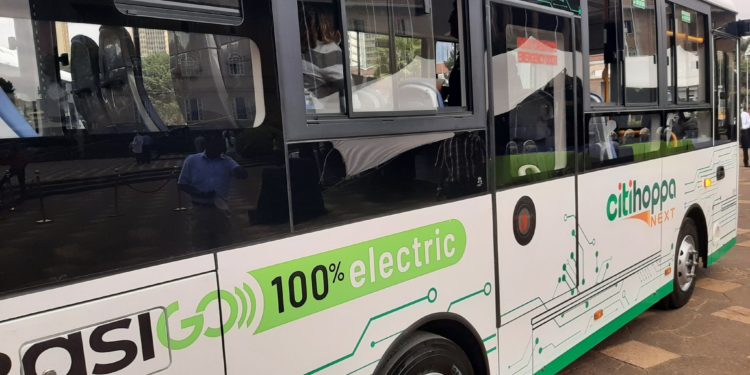BasiGo, the first company to introduce electric buses into Kenya, has announced the arrival of fifteen new electric buses into the Port of Mombasa.
The electric buses are from BYD Automotive in China, which is currently the largest manufacturer of electric vehicles in the world.
The arrival of the 15 new vehicles follows BasiGo’s successful pilot of the first electric buses in Nairobi and represents the largest shipment of electric buses to ever enter the region.
“The electrification of the transport sector in Kenya is accelerating, and BasiGo is proud to be leading the way.” said Jit Bhattacharya, CEO of BasiGo, in a press release sent to media houses.
BasiGo first launched electric buses into pilot operation in Nairobi starting in March of 2022.
The company’s two pilot buses have driven over 120,000 kilometres and carried over 150,000 passengers with two separate bus operators: Citi Hoppa and East Shuttle.
“These new 15 buses will soon be plying routes across Nairobi, giving residents of Nairobi access to safe, comfortable, and clean public transport for their daily commute,” Jit Bhattacharya.
This new shipment is the same model of the electric bus as the pilot program. The new buses have arrived partially assembled and will be taken to Associated Vehicle Assemblers (AVA) in Miritini, Mombasa, for final assembly and finishing.
Speaking at the Mombasa port while receiving the buses aboard the ‘Morning Christina” vessel that docked at the port on Tuesday afternoon, Moses Nderitu, the Chief Revenue Officer at BasiGo, said that finishing the assembly of these buses here in Kenya is an important step in demonstrating that these new electric vehicles can be manufactured locally.
“Starting next year, all electric buses that BasiGo delivers to customers will be locally assembled here in Kenya. There is some localization happening including interior, telematics going into the bus so that we start building local capacity in assembling electric buses in Kenya,” Moses Nderitu.
The buses, he said, are fully electric with a 25-set capacity and go for KES 5 million minus VAT, which will bring the cost to about KES 5.8 million.
He said that the price is competitive with diesel and petrol-driven buses brought into the country.
“We are currently providing a separate contract called pay as you drive where operators pay sh20 per kilometer which is way lower than they are paying for diesel. We are able to charge, do maintainance and even clean the buses for them that is included in the pay as you drive contract,” Moses Nderitu.
Francis Mungai, head of fleet operation at BasiGo, said that the buses currently operate from 5 am to 11 pm in the evening.
He said that the beauty about the buses is that they were going to install a telematics unit that will be able to even give feedback and do live tracking and will also be able to give advance notice about any issue.
“We have an interface in the bus where you can be able to tell how much charge and how many kilometers remain for me to get to the next charging point; it has that kind of interaction,” Francis Mungai.
He reiterated that as a country, we need to go away from diesel and petrol as fast as possible and as soon as possible because of the benefits that we can get from renewable and sustainable kind of transport.
“The long term plan for us and everyone who are passionate about climate change is that we would wish to have all vehicles operating on clean green energy,” Francis Mungai.
Read also; BasiGo Receives $1 Million Investment from Mobility 54 Investment SAS.




